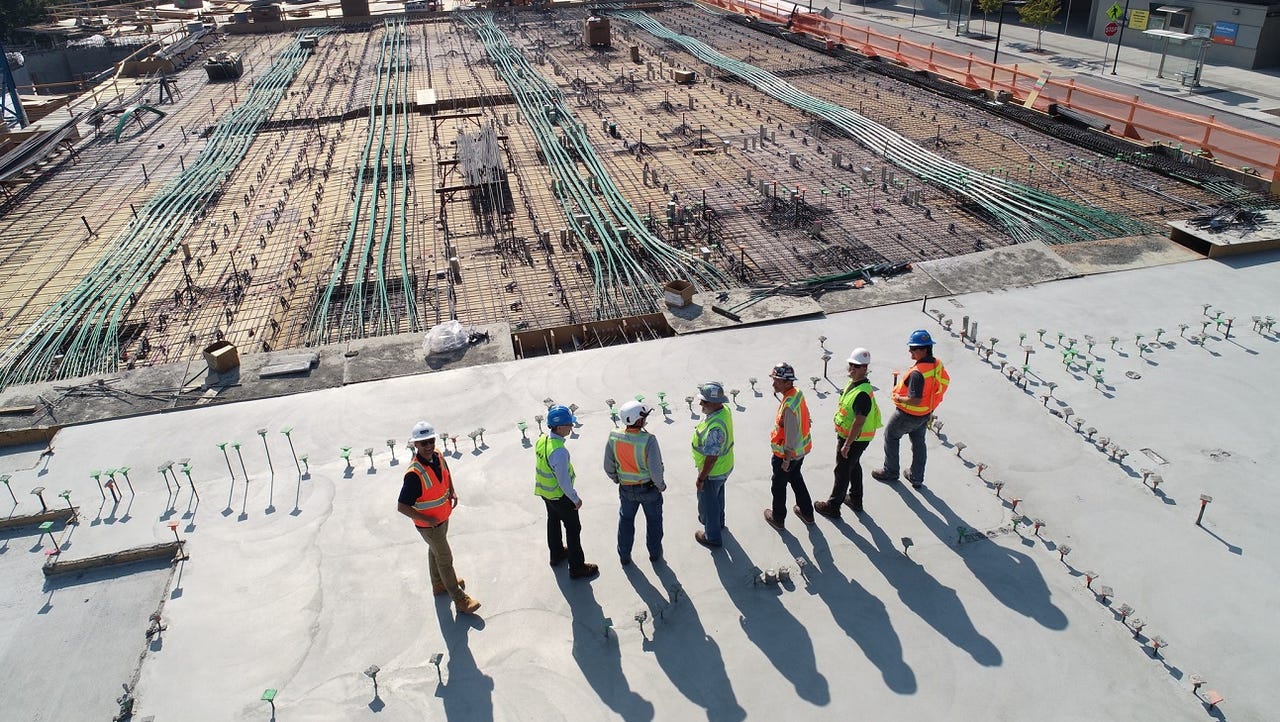































 Scott Blake/Unsplash
Scott Blake/Unsplash Civil engineering focuses on the manmade structures that make up our environments. Civil engineers oversee public works like roads, bridges, and water and sewer systems. They also design buildings, drainage systems, and environmental infrastructure.
Because civil engineers help make our physical world function, the demand for them remains strong. According to the Bureau of Labor Statistics, civil engineers are projected to see an 8% growth in employment by 2030. Additional civil engineering degree jobs include construction managers, environmental engineers, and surveyors.
Few online civil engineering degrees exist due to the discipline's hands-on nature. We found one program that blends the convenience of online education with what goes into a traditional civil engineering bachelor's degree.
A civil engineering degree blends foundational coursework in engineering theory with advanced classes in aspects of the discipline. Civil engineering encompasses topics like transportation engineering, hydraulic engineering, and environmental engineering. You'll take classes and complete lab requirements in areas such as
You'll complete many individual and group assignments to practice your skills. Elective courses may allow you to focus your degree on a specific area of the field.
Many civil engineering degrees culminate in a final capstone project for students to demonstrate they are prepared to work in the industry.
For more details on civil engineering degrees, including other degree levels you can pursue, check outWhat is a civil engineering degree?
Civil engineering bachelor's degrees build your foundational understanding of the discipline. Though core courses are similar among programs, universities vary in the concentrations and electives offered.
Introduction to surveying
As an overview of surveying equipment, measurements, procedures, and processes, an introductory course in surveying sets the foundation for interpreting site surveys. You learn how to discuss and describe surveying, basic terminology, and the mathematics and science needed to use survey data.
Soil mechanics
A soil mechanics focuses on soil's physical and mechanical properties. It teaches you about soil classification, compaction and flow, permeability and seepage, and related topics. You'll explore testing soil, shear strength, and slopes and stability.
Environmental engineering fundamentals
Topics covered include water and wastewater engineering, air pollution control, and solid waste management. By focusing on the past, present, and future of environmental issues and how they relate to civil engineering, you learn how to solve problems while designing and improving more environmentally friendly structures.
Structural engineering design
A class in structural engineering design focuses on the principles of concrete, steel, and masonry design. You also learn about structural analysis at the element and system levels. Coursework includes hands-on projects, problem sets, and group discussions. You'll gain insight into load and design safety, constructability and structural control, and load estimation.
ZDNet's ranking methods considers many factors to provide you with the best information about degree options. By combining federally reported data, expert insights, and programmatic and professional outcomes, our algorithm offers an objective and comprehensive take on the best online civil engineering degree. With only one program on the list, rest assured it's the best online option available.
Unless otherwise indicated, data is drawn from the Integrated Postsecondary Education Data System and College Scorecard.
Grand Forks, North Dakota
About the program:UND's online bachelor's degree in civil engineering includes 128 credit hours. The curriculum meets the education requirements for civil engineering licensure in all U.S. states. UND also offers a combined bachelor's and master's degree online, completable in 5.5-6 years. This program is ABET-accredited.
Sierra Gawlowski, PE, earned her BS in civil engineering and is a licensed professional engineer in the state of Washington. She has worked for a private engineering consulting firm as well as for public agencies. Sierra enjoys mentoring engineering students and junior staff. She also leads a project team for Engineers Without Borders and currently sits on the board of directors for Kilowatts for Humanity.
Gawlowski is a paid member of the Red Ventures Education Integrity Network.
Last reviewed May 20, 2022.
 Tags quentes :
Educação
Ciência e Engenharia
Tags quentes :
Educação
Ciência e Engenharia